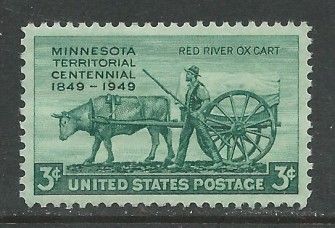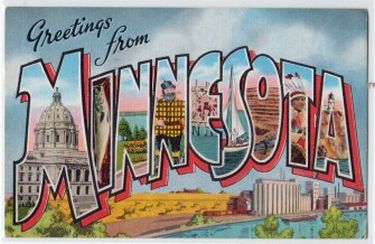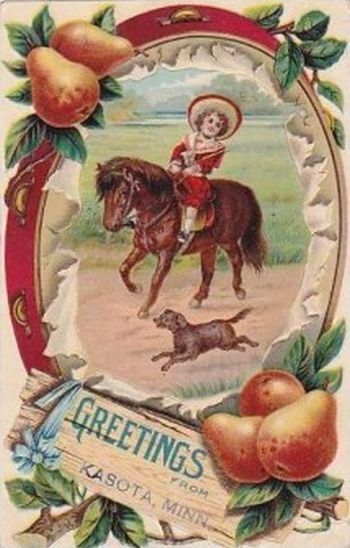Minnesota Exhibition Hall
St. Paul, Minnesota was the northern-most steamboat landing on the Mississippi River.
It was there that the first Jewish pioneers created Mt. Zion Hebrew Congregation in 1856.
Most of these early German-Jewish pioneers became clothing and dry goods merchants, fur traders, and cigar makers.
Eastern-European Jewish pioneers who arrived in the late 1880’s became craftsmen on the new railroads, scrap metal dealers, and workers in garment factories.
Jewish pioneers spread into newer towns, such as Austin, Albert Lea, and Mankato, mostly as merchandisers of dry goods.
Once iron ore was discovered, Duluth‘s Jewish population soared, reaching a peak of about 4,000.
New towns, such as Virginia, Hibbing, Chisholm, and Eveleth then flourished with Jewish merchants.
Contents
Jewish Organizations
Mount Zion Temple of St. Paul: Minnesota’s First Synagogue, est. 1856
Chevra B’nai Ya’akov/Beth Jacob of St. Paul, Minnesota
Shaarai Tov/Temple Israel of Minneapolis, Minnesota, est. 1878
Minnesota Postcards, 1904-1910
Early Jewish Pioneers
Julius Austrian: Early Jewish Pioneer Merchant of Northern Minnesota & Wisconsin
The Elfelt Brothers: Edwin, Charles & Abram, Early Jewish Pioneer Merchants of St. Paul Minnesota
Isaac Marks: Jewish Pioneer Merchant of Manketo, Minnesota
Jacob Jackson Noah: Pioneer Jewish Attorney of St. Paul, Minnesota
Maurice Mordecai Samuel: Jewish Pioneer Fur Trader and Civil War Army Officer of Early Minnesota



